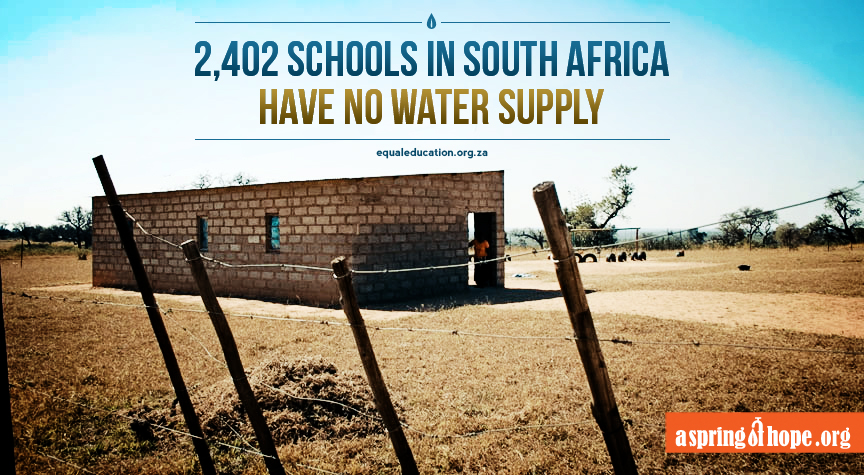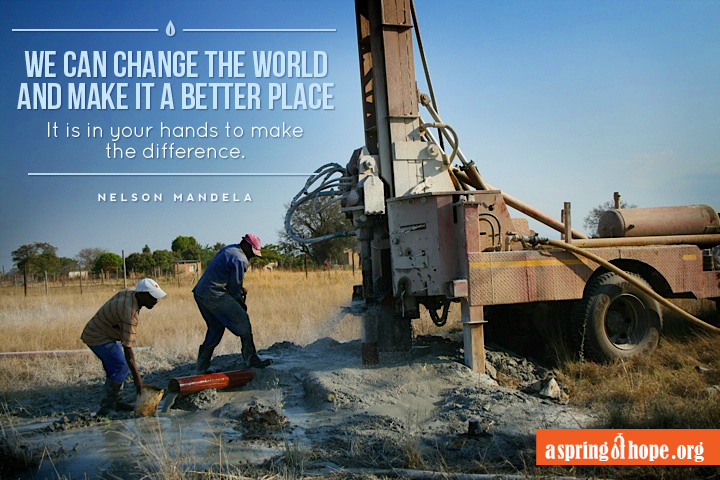PROBLEMS IN SOUTH AFRICA
Limpopo Province, at 83.3%, has the
highest rate of childhood poverty
UNICEF.org. Children’s Institute, University of Cape Town
UNICEF.org. Children’s Institute, University of Cape Town
There is a noticeable and significant dichotomy in South African society. On the one hand there are the glamorous cities of Johannesburg and Cape Town and on the other, there is the profound, inescapable poverty of rural South Africa. The root of these problems is high unemployment, poor education in the black communities, the AIDS epidemic – orphans as a result of the disease number in the millions, an ailing public health system, inadequate infrastructure, and spacial challenges that marginalize the poor.
In the Limpopo region alone, where A Spring of Hope focuses most of our efforts, a staggering 83.3% of all children live in poverty. To visit this region is to be profoundly affected by the abject neglect, as organization founders Joanne and Brittany Young discovered on their first trip to Africa in 2005. Brittany had this to say after one of her first visits:
I would never have imagined that a vacation in South Africa would change my life, but my visit to a rural South African school, Beretta Primary, stuck with me. The school had over 1,200 students, from preschool to seventh grade, all living in poverty. It lacked desks, school supplies, and even proper floors. However, the most shocking problem was the lack of running water. Rivers and lakes are far from Beretta Primary and its town, Acornhoek, suffers from drought, AIDS, unemployment, and a rapidly growing number of orphans.
Statistics South Africa (2010). General Household Survey 2009.
Brittany was just a high school student at the time, but determined to make a difference. She enlisted a group of her friends and their fundraising efforts yielded $10,000, enough money to drill a well at Beretta Primary. In a subsequent visit, Brittany and Joanne witnessed the progress of the school and were gratified to see the bountiful year-round gardens and improved sanitation.
However, when they visited the surrounding community to distribute supplies like blankets, cabbage, non-perishable milk, and soap, they knew there work had only just begun. Brittany describes her experience:
The homes we visited, usually closet-sized and constructed of mud and concrete, did not have access to water or fresh food. The market was miles away, and water was a trek to a small government pump that only occasionally churned up water. I met an eight-year-old girl whose parents had died when she was only a toddler, and who had lost her grandmother (her only guardian) a week before we arrived. She had not eaten since her grandmother’s death. Another girl, just 16, cared for eight children, all orphans. I shudder to think how she might have gone about getting food for her family if we had not brought supplies. We visited one of those government-installed pumps. People walked miles with wheelbarrows loaded with containers to wait their turn. This was not a suitable source of water for so many people. Hundreds of children do not have water or good meals at home.
The well at Beretta proved to be far more life-sustaining than either of them initially realized and of great importance to the community. However, there are still so many more schools and communities that need this essential support.

To date, ASoH has drilled wells at over 30 schools in South Africa. In addition to drilling wells, we have also developed, with the assistance of the dedicated principal of Beretta Primary, Leanette Sithole, a comprehensive permaculture program, in which all our partner schools participate. This program allows the schools to maximize the yield from their gardens and conserve the precious water supplied by their wells.
equaleducation.org.za
However, many challenges continue to present themselves. Sanitation remains a big issue. Many schools lack adequate toilets or kitchen facilities to prepare the food grown in their gardens. Our dedicated team is always searching for solutions. For instance, we are installing waterless toilets at some of the campuses and we maintain relationships with all our partner schools, allowing us to identify those which are struggling with garden cultivation or need repairs on their irrigation infrastructure and provide them the necessary ongoing support.

We are a small charity, but we are constantly seeking new ways to grow and extend our support community. We have developed partnerships with South African Airways, the Irie Foundation, the Rand Water Foundation, and House of Mandalea, among others. One of the advantages to being a small charity is that we have very low overhead and all funds donated are directed towards projects.
Visit the schools page to see case studies and locations of our partner schools .
Won’t you join us in our mission? A gift as little as $5 can supply water to a child for an entire year! Give now and help us continue this life-sustaining work. Don’t forget to sign up for our newsletter. Just click on the buttons below!